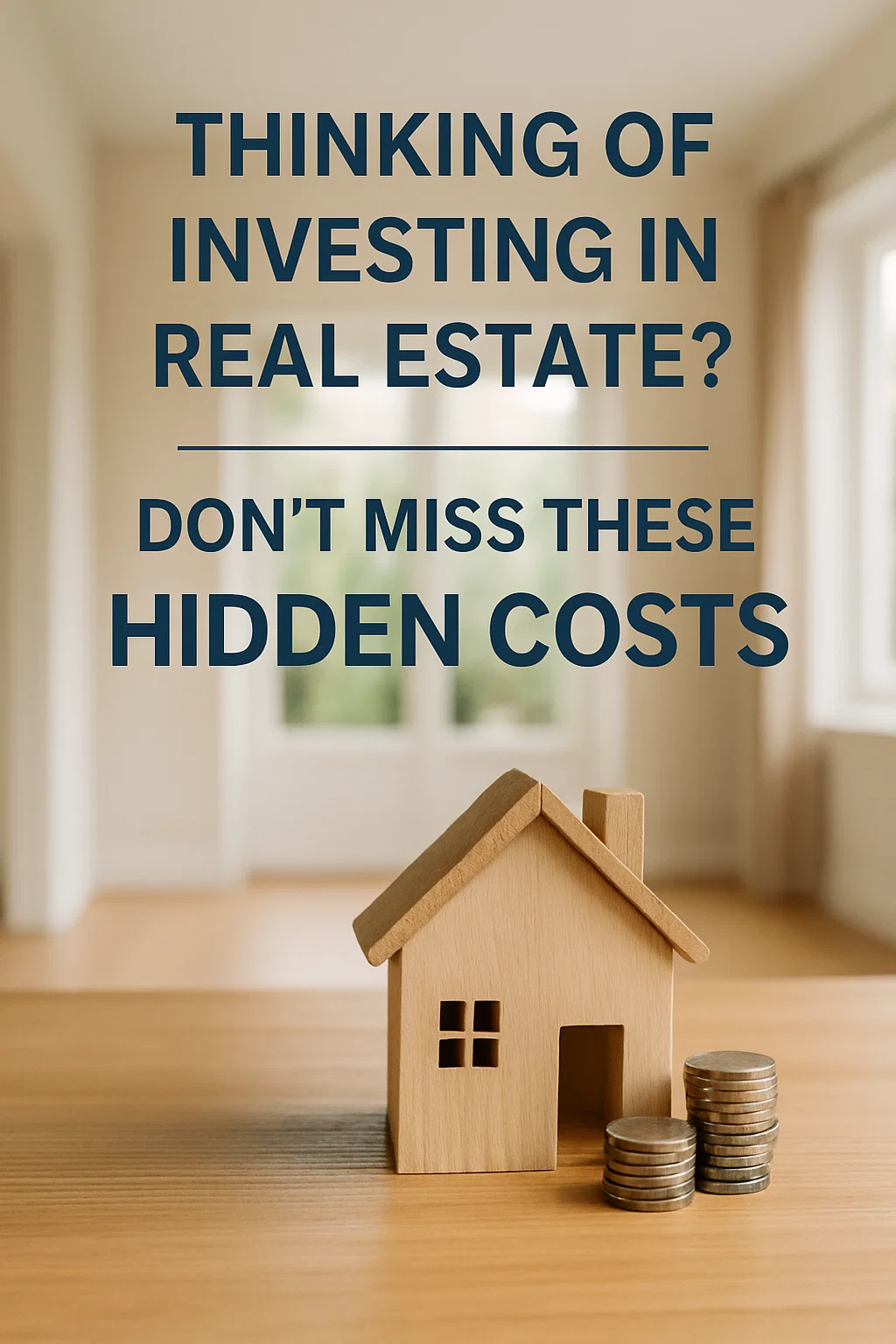🏠 Thinking of Investing in Real Estate? Don’t Miss These Hidden Costs
Real estate can be a smart way to build wealth—but for first-time investors, the numbers don’t always tell the whole story. While the mortgage and down payment are usually front of mind, hidden expenses can quietly reduce your returns or even lead to unexpected losses.
Before you sign on the dotted line, here are seven hidden costs every first-time property investor should be aware of.
- Closing Costs: More Than Just a Down Payment
Many new investors assume the down payment is the final hurdle—but closing costs can add an additional 2% to 5% of the purchase price.
These may include:
Legal and notary fees
Title insurance
Property appraisal
Transfer taxes
Loan origination fees
📌 Tip: Request a full breakdown from your lender before finalizing the purchase.
- Property Taxes: Annual and Adjustable
Even if your monthly mortgage payment seems manageable, property taxes can add hundreds—or even thousands—to your annual costs. These taxes are based on the assessed value, which can increase over time, especially in up-and-coming neighborhoods.
🧾 Watch for:
Tax reassessments after purchase
Local millage rate increases
School or city improvement levies
- Repairs and Ongoing Maintenance
Even a brand-new home needs upkeep. Whether it’s seasonal maintenance or an unexpected repair, costs can pile up fast.
🔧 Common expenses include:
Appliance replacements
Plumbing or HVAC fixes
Roof repairs
Landscaping and pest control
🛠️ Budget at least 1% of the property’s value annually for routine maintenance.
- Vacancy Periods: No Rent, No Income
Many first-time landlords forget to plan for the months when the property is vacant—whether between tenants or during unexpected repairs.
💡 Rule of thumb:
Budget for 1–2 months of vacancy per year, especially if you’re investing in short-term or seasonal rentals.
- Property Management Fees
If you’re not managing the property yourself, you’ll likely hire a property manager—especially if you live in a different city.
🏢 Typical costs:
8–12% of monthly rental income
Additional fees for tenant placement, maintenance calls, or evictions
- Insurance Gaps
Standard homeowner’s insurance may not be enough for a rental or investment property. Depending on the location and usage, you might need:
Landlord insurance
Flood or fire coverage
Liability protection
🧠 Don’t assume your lender’s minimum requirement is sufficient—always assess your own risk tolerance.
- HOA Dues and Special Assessments
If the property is part of a homeowners’ association (HOA), you’ll need to pay regular fees. These can be monthly or quarterly and may increase without much notice.
Think about the secret costs of house renovations that seem to go up. A simple bathroom update can quickly become a big problem if you find old plumbing that needs to be updated or asbestos that needs to be taken care of by a professional. Even seemingly insignificant changes can necessitate updating the electrical work to meet code requirements.
People considering strategies like paying off mortgage faster by making extra payments should know that some loan products have fees or limits that aren’t always made clear at the start when extra payments are made.
⚠️ Watch for:
One-time assessments (e.g., roof replacement, new elevators)
Restrictions on renting, remodeling, or reselling
